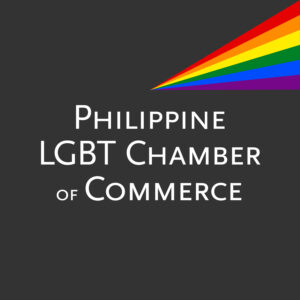by: Anna Gabriela A. Mogato
Ranking among the top nations in terms of women empowerment, the Philippines has a global reputation for gender inclusivity. Similarly, one look at the local media landscape reveals how prominently LGBTQIA+ personalities are featured in Filipino entertainment. It must stand to reason then that the Philippines is a universally inclusive society.
Or does it?
A new study commissioned by the Philippine LGBT Chamber of Commerce revealed that, in the workplace, policies are often anything but inclusive. According to the first Philippine Corporate SOGIE (sexual orientation, gender identity and expression) Diversity and Inclusiveness Index, only 17 out of the 100 companies covered by the study have any policies, none of which homegrown.
Conducted by Cogencia Consulting, Inc. and published on Nov. 7, the study revealed that only 17% of the respondents — all foreign-headquartered companies in the business process outsourcing sector — have anti-discrimination policies explicitly referencing measures to counteract gender discrimination.
These policies refer to explicitly prohibiting specific actions such as misgendering, “outing” (publicizing an employee’s SOGIE without their consent), and making use of slurs against LGBTQIA+ employees.
Among those 17 companies, only 10 actually implemented ways to track SOGIE inclusiveness educational programs. This means a vast majority of respondents had no means to actively support anti-discrimination efforts.
Brian U. Tenorio, the Chamber’s founder and president, noted that the study was not meant to represent the full reality of workplaces nationwide. Local companies aren’t hostile to SOGIE-inclusivity efforts, he said. But there is a general lack of concern for providing equal opportunities to all employees.
“[I think it’s safe to say] Philippine organizations do not accept or tolerate the LGBT. It’s unfortunate to say,” he said.
Carrot and stick
Filed in 2000, the SOGIE Equality Bill was meant to elevate the lives of LGBTQIA+ workers by establishing a legislative framework for anti-discrimination in the country. It was passed all the way through its third and final reading in the House of Representatives, but ultimately stalled in the Senate, where it sits dormant to this day.
“In the absence of laws, we cannot really demand the companies to be inclusive…. What we can do now is … to sort of incentivize the local companies and celebrate the ones that are doing the best practice out there,” said Evan A. Tan, vice chair for business and industry at the Philippine LGBT Chamber of Commerce.
“We can present data, we can present this (the SOGIE Index), we can show them that there [may be] economic loss,” he said. “[B]ut then again, if the company says ‘I don’t care,’ then there’s nothing we can do about that.”
While there are currently no local reports on how diversity impacts a company’s profit, the Chamber pointed to studies conducted overseas showing how diversity in various forms helps elevate a company’s productivity and profitability. Tenorio pointed out that diversity is an “intangible asset” and not a liability for companies.
“The more diverse [the companies] are, it [doesn’t mean they’re] gonna spend more money,” Tenorio said, referring to the claims that efforts to improve diversity in the workplace such as gender-neutral restrooms and programs.
“[W]hat it means, is you’re going to be more progressive and profitable in the long run.”
Companies with non-progressive policies won’t attract the best talents, Tan said. By virtue of their exclusivity, they shut out potential candidates, limiting their talent pools from the get-go.
“It’s safe to assume these companies suffer when they are not inclusive. That’s when you don’t attract the best talent … [because] you’re kind of, separating them and they’re unable to contribute well in their organization. Definitely, there’s an impact,” Tan said.
Zero to 100
Starting next year, the Chamber will be embarking on a campaign to promote SOGIE-inclusivity among Philippine companies — starting with the 100 it surveyed in its study.
On the same day it published its report, the chamber launched #ZEROto100PH, an umbrella campaign for the projects the group will undertake next year. These include corporate educational programs to promote SOGIE-inclusivity efforts.
Having already piloted the program with one company, Tan says the Chamber is ready to scale up its operations with more volunteers. By the end of 2019, they hope to train their entire first batch of 100 companies.
With the lack of national legislation to enforce SOGIE-inclusivity, Tan says he understands that the road ahead is long yet. But progress is progress, and any steps towards full inclusivity are victories, no matter how small.
“I don’t think 100 companies will be able to be 100 percent inclusive [right away],” Tan said. “But [these are] actionable steps, baby steps towards achieving that, especially for the ones that have zero inclusion in their policies or practices.”
